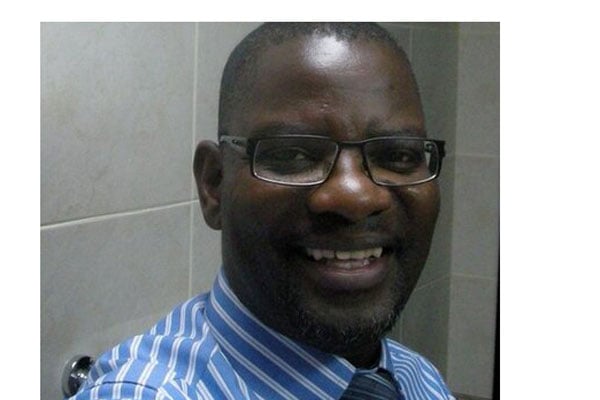The two problems we have in our weightlifter’s Japan saga

Author: Musaazi Namiti. PHOTO/FILE
What you need to know:
- ‘‘We have countries, especially in Europe, losing sleep over Africans”
The first time I travelled to the United Kingdom, I was advised by nearly everyone who knew about my trip not to return to Uganda.
Most people who gave me that advice had never been to the UK, did not know that — apart from proper professionals — many Ugandans and migrants (some are actually illegal immigrants) from other countries working in that country did back-breaking work just to put food on the table, pay utility bills and occasionally send £35 to friends and family they left back home.
The very first Ugandan I spoke to by telephone, weeks after my arrival, was proposing a meeting over — what else? — coffee. But wait a minute! He did not have money and wanted me to lend him some, promising to pay me back as soon as he got paid. He was an illegal immigrant.
Nonetheless, my advisors still felt that I was better off living and working in the UK illegally. I was in my 20s, and I was not returning to a plum job. But when the journalism training programme I had gone to attend ended, I hopped on the plane and went back home. I have since returned to the UK many times, and I have never refused to return to Uganda because the country our former colonisers call home is rich.
There is one compelling reason I started with this personal experience. Some Ugandans have said that weightlifter Julius Ssekitoleko, 20, who travelled to Japan illegally with the Ugandan Olympics team and disappeared to try to find employment, had serious financial difficulties but with no decent source of income.
He, they argue, was trying to find ways to survive and that he had a pregnant wife to look after. Obviously, these are extenuating circumstances, but then if everyone with extenuating circumstances broke the law, the world would be teeming with people who are supposed to be behind bars.
In Mr Ssekitoleko’s saga, we have two problems. The first is that Ugandans, despite being very religious, are much given to using illegal/criminal ways to better their lives. Ugandans’ propensity to criminal and immoral acts makes a complete nonsense of their religiosity. We cannot account for Covid-19 cash donations. Corruption reaches ministerial level. Married archbishops sleep with women married to reverends. Prostitutes grace fund-raising events.
In London and Boston, the vast majority of Ugandans living there and have acquired citizenship went to visit family and/ or friends and refused to leave. They broke the laws of their host countries, but they are not bothered about it.
The second problem in the Ssekitoleko saga is that our government and many other governments across Africa have signally failed to create opportunities for the youth, which would give them hope for a promising future in their countries. As a result we have countries, especially in Europe, losing sleep over Africans making their way to places where they are not welcome.
In 2015, European leaders offered African countries almost €2bn (Shs8.4 trillion) in return for agreeing to the deportation of unwanted migrants, mainly from Africa. It was their latest attempt to get to grips with the mass movement of people who have, as The Guardian put it, destabilised European politics.
Mr Ssekitoleko wanted to escape abject poverty and was naive enough to think he could disappear without trace in a well-organised country. But if the government that detained him on arrival from Japan had offered him decent paid work, he would think twice about making an illegal trip to the Olympics.
Let us try to do better for our youth.
Mr Namiti is a journalist and former Al Jazeera digital editor in charge of the Africa desk
[email protected] @kazbuk




